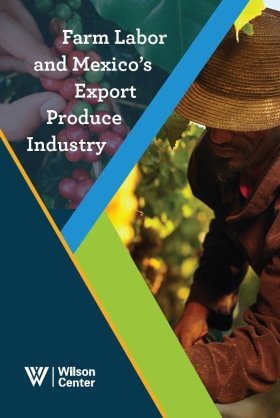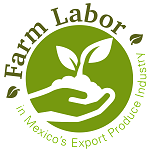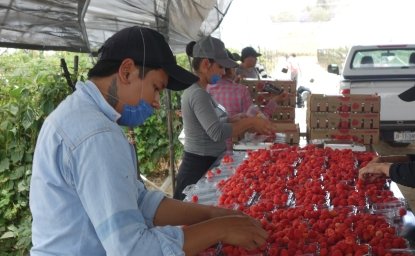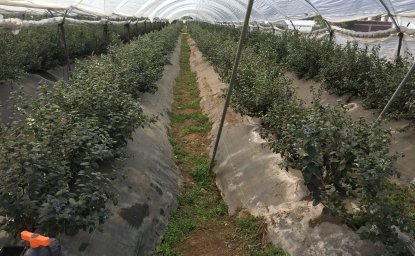Farm Labor and Mexico's Export Produce Industry



The Wilson Center’s Mexico Institute, along with CIESAS and Migration Dialogue, are pleased to launch a report on farm labor in Mexico’s export produce industry.
About half of the fresh fruit and a third of the fresh vegetables consumed in the U.S. are imported. Mexico is the major source of imported fresh fruits and vegetables, and export farms provide a million jobs for hired farm workers. The Farm Labor in Mexico’s Export Produce Industry survey funded by the Walmart Foundation and conducted by CIESAS and Migration Dialogue for the Wilson Center’s Mexico Institute, obtained statistically reliable data of workers employed on Mexican farms that export fruits and vegetables to the U.S. This project developed current farm worker data about the wages and working conditions of Mexican workers and internal migrants employed on farms that grow produce for U.S. consumers. This work was designed to test progress since news reports about labor conditions and labor abuses dating back to 2014 (The Product of Mexico series in the Los Angeles Times in December 2014, in particular reported widespread violations of Mexican labor laws). The study is intended to help develop understanding on what has changed since, including what gaps and opportunities remain. The study is centered on export-oriented produce farms and, while broadly representative of this segment, is not an assessment of the overall produce market in Mexico that includes a sizeable market for locally consumed produce.
Among the report findings:
- Mexico’s export-oriented agriculture creates valuable jobs for workers with little education. The real wages of Mexican farm workers have increased and are significantly higher than Mexico’s minimum wage of 103 pesos a day; workers harvesting berries for piece rate wages often earn 200 to 300 pesos a day, two or three times the minimum wage.
- Mexico’s comprehensive social security system provides health, childcare, and pension benefits to workers whose employers contribute 23 percent of wages paid and make an additional contribution for a housing fund. More than 95 percent of export-oriented farms reported paying social security taxes on behalf of their employees, much higher than the 48 percent of all Mexican employers. However, the government service providers IMSS and Infonavit funded by these payroll taxes often fail to deliver services to farm workers, especially childcare, health care and housing
- The expansion of export agriculture means less Mexico-U.S. migration but more internal migration within Mexico. Migration offers opportunities for people living in poorer areas to earn higher wages and to send home remittances, improving housing and investment in education and health care. Longer seasons are encouraging some migrants to settle near their export-oriented workplaces, which moves workers and their families to areas that offer more opportunity.
The worker survey, focus groups, and data analysis made several recommendations to maintain areas of progress and to enhance worker protections in Mexico’s export agriculture in areas where social gaps and risks remain.
Farm Labor in Mexico’s Export Produce Industry report is made possible through a through grant funding support from Walmart Foundation. The report provides the most statistically reliable data available on workers employed on Mexican farms that export fruits and vegetables to the United States. The comprehensive report tracks trends in Mexican exports, summarizes other studies of Mexican farm workers, analyzes the 2019 worker survey data, and summarizes case studies and focus group discussions with farm workers, employers, and other stakeholders.

Authors

Professor, CIESAS Occidente; Director, Jornaleros en la Agricultura Mexicana de Exportación


Mexico Institute
The Mexico Institute seeks to improve understanding, communication, and cooperation between Mexico and the United States by promoting original research, encouraging public discussion, and proposing policy options for enhancing the bilateral relationship. A binational Advisory Board, chaired by Luis Téllez and Earl Anthony Wayne, oversees the work of the Mexico Institute. Read more

Explore More
Browse Insights & Analysis
Farm Labor and Mexico’s Export Produce Industry

Meet the Farm Workers: Case Studies from Mexico's Export Ag Industry

